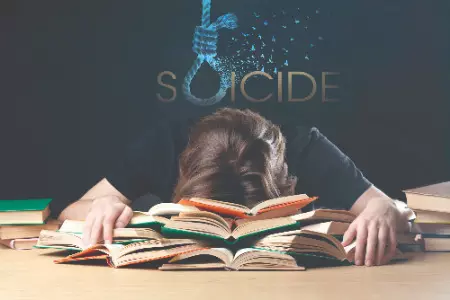SC sets up task force on students’ suicides in educational institutions

New Delhi: The Supreme Court on Monday established a National Task Force (NTF) to address the growing concern of student suicides in higher educational institutions across India. The decision came as the court noted a “disturbing pattern” of such incidents, highlighting the need for a comprehensive framework to prevent these tragedies.
A bench comprising Justices J B Pardiwala and R Mahadevan issued the order while hearing an appeal from parents of two students who died by suicide at the Indian Institute of Technology (IIT), Delhi, in 2023. The court directed Delhi Police to register an FIR based on the complaints filed by the families of the deceased students.
“The recurring instances of student suicides in higher educational institutions, including private educational institutions, serve as a grim reminder of the inadequacy and ineffectiveness of the existing legal and institutional framework in addressing mental health concerns of students on campuses and to prevent the students from taking the extreme step of committing suicides,” the court stated in its order.
Former Supreme Court Justice S Ravindra Bhat will chair the task force, which will include secretaries from state higher education departments, social justice and empowerment, legal affairs, and the Ministry of Women and Child Development as ex-officio members.
The NTF has been tasked with preparing a comprehensive report that identifies the primary causes leading to student suicides, analyses existing regulations, and recommends stronger protective measures. The court has granted the task force authority to conduct surprise inspections at any higher educational institution.
“Additionally, the task force shall be at liberty to make further recommendations beyond the specified mandate, wherever necessary, to ensure a holistic and effective approach towards addressing the mental-health concerns of students and eliminating the incidence of suicides in higher educational institutions,” the order added.
The court set a timeline of four months for an interim report and preferably eight months for the final report.
The case that prompted this significant action involved two students, Ayush Ashna and Anil Kumar, who were found dead in their hostel rooms at IIT Delhi on July 8, 2023, and September 1, 2023, respectively. Both students belonged to scheduled castes, and their families alleged they had been victims of caste discrimination prior to their deaths.
The bench noted that Delhi Police had declined to register FIRs on the complaints, claiming there was no evidence of abetment to suicide. Overruling this decision, the court stated, “This litigation is an eye-opener not just for the police but also for the parents whose children are studying in different educational institutions, more particularly those students residing in a hostel far from their respective homes, and also the management of the educational institutions across the country.”
The judgment cited alarming statistics provided by the Union Minister of State for Education to the Rajya Sabha in 2023, revealing that 98 students died by suicide in higher educational institutes since 2018. The breakdown showed 39 cases from IITs, 25 from NITs, 25 from central universities, four from IIMs, three from IISERs, and two from IIITs.
In its legal assessment, the court clarified that when an informant approaches police with information regarding a cognisable offence, law enforcement has a duty to promptly register an FIR and initiate an investigation under Section 154 of the Code of Criminal Procedure (CrPC).
“The police could not have taken a shortcut just because something happened in the hostel of an eminent educational institution like IIT Delhi,” the bench remarked.
The court directed the Deputy Commissioner of Police (South-West District) to register the FIR based on the two complaints lodged by the family members and assigned an Assistant Commissioner of Police or higher-ranking officer to conduct the investigation.



